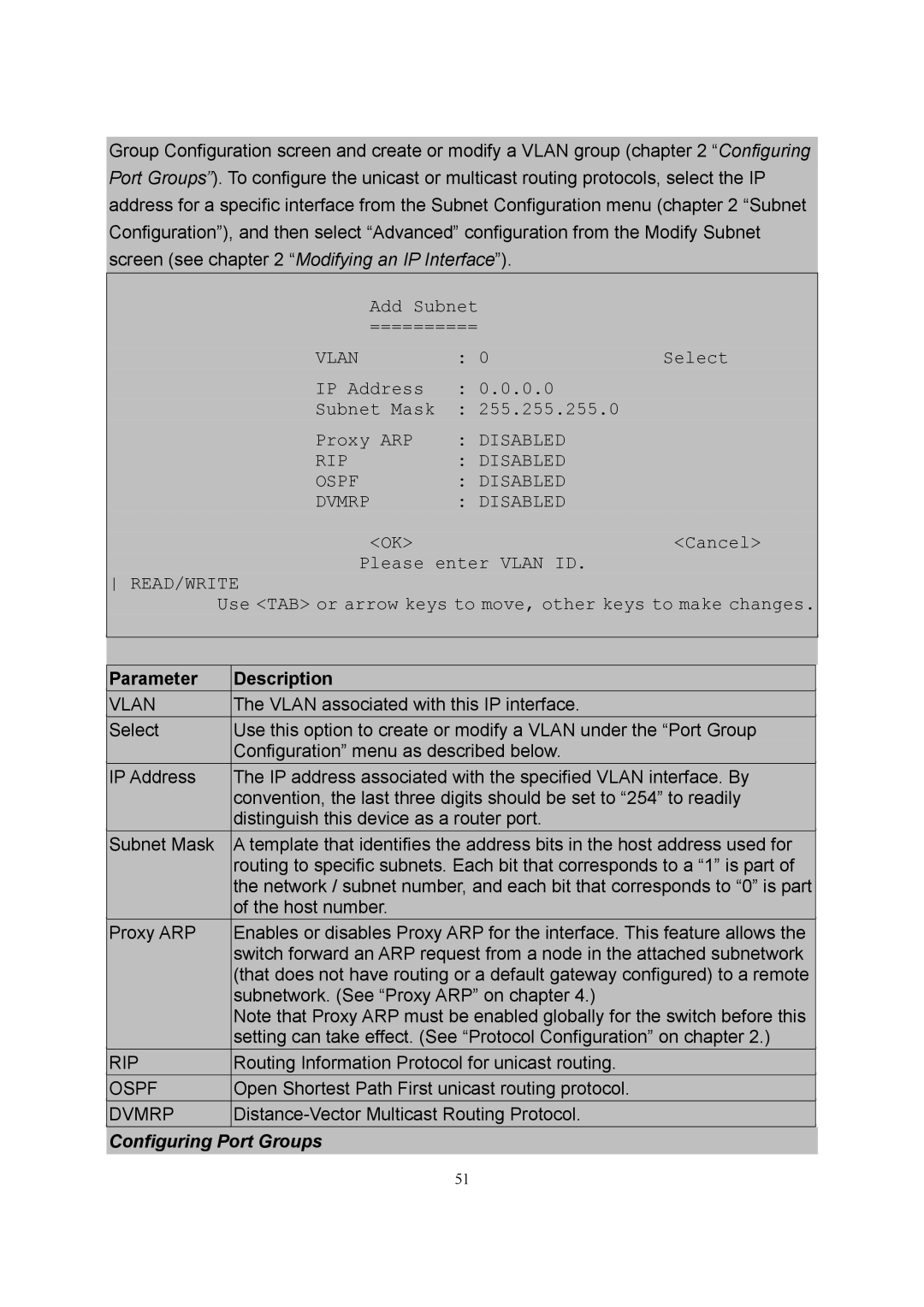
Group Configuration screen and create or modify a VLAN group (chapter 2 “Configuring Port Groups”). To configure the unicast or multicast routing protocols, select the IP address for a specific interface from the Subnet Configuration menu (chapter 2 “Subnet Configuration”), and then select “Advanced” configuration from the Modify Subnet screen (see chapter 2 “Modifying an IP Interface”).
Add Subnet
==========
VLAN | : 0 | Select |
IP Address | : 0.0.0.0 |
|
Subnet Mask | : 255.255.255.0 |
|
Proxy ARP | : DISABLED |
|
RIP | : DISABLED |
|
OSPF | : DISABLED |
|
DVMRP | : DISABLED |
|
<OK> |
| <Cancel> |
Please enter VLAN ID.
READ/WRITE
Use <TAB> or arrow keys to move, other keys to make changes.
|
|
|
| Parameter | Description |
| VLAN | The VLAN associated with this IP interface. |
| Select | Use this option to create or modify a VLAN under the “Port Group |
|
| Configuration” menu as described below. |
| IP Address | The IP address associated with the specified VLAN interface. By |
|
| convention, the last three digits should be set to “254” to readily |
|
| distinguish this device as a router port. |
| Subnet Mask | A template that identifies the address bits in the host address used for |
|
| routing to specific subnets. Each bit that corresponds to a “1” is part of |
|
| the network / subnet number, and each bit that corresponds to “0” is part |
|
| of the host number. |
| Proxy ARP | Enables or disables Proxy ARP for the interface. This feature allows the |
|
| switch forward an ARP request from a node in the attached subnetwork |
|
| (that does not have routing or a default gateway configured) to a remote |
|
| subnetwork. (See “Proxy ARP” on chapter 4.) |
|
| Note that Proxy ARP must be enabled globally for the switch before this |
|
| setting can take effect. (See “Protocol Configuration” on chapter 2.) |
|
|
|
| RIP | Routing Information Protocol for unicast routing. |
| OSPF | Open Shortest Path First unicast routing protocol. |
| DVMRP | |
|
|
|
Configuring Port Groups
51
